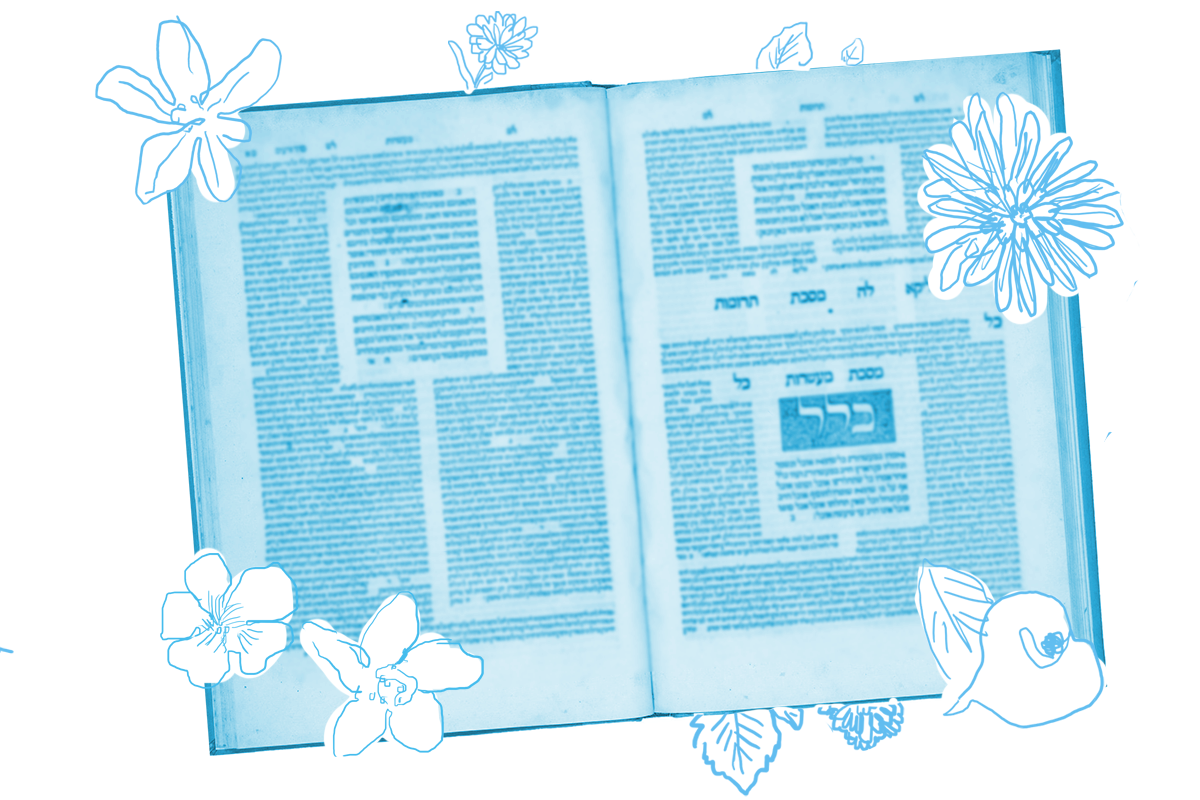The Talmud takes great care not only to record teachings accurately, but to attribute them correctly. This doesn’t mean mistakes are not made. Often, the Talmud will attribute a teaching to one rabbi, only to remark that others attribute it to another rabbi. Or, as is the case today, it will know the source but be unsure of the original teaching. Oral traditions are easily confused and transmuted.
On today’s page, the rabbis are troubleshooting the accidental slaughter of the two Yom Kippur goats. It seems incredible that the high priest, with all his preparation and handling, would lose his wits and sacrifice both goats before casting lots to determine which will be the sin offering and which will be the goat for Azazel, but that’s exactly the scenario the rabbis contemplate — perhaps less because it is a likely possibility, and more because it presents an interesting academic exercise. You decide.
In the midst of a highly technical discussion on this unfortunate (hypothetical) mistake, analogous teachings about similar sacrificial mistakes are brought, including the following:
When Rav Dimi came (from the land of Israel to Babylonia), he said that Rabbi Yirmeya said that Rabbi Yohanan said: If one slaughtered a paschal lamb outside the Temple during the rest of the days of the year (i.e. not on Passover), whether he slaughtered for its own sake, or not for its own sake, he is exempt.
Remember Rabbi Yirmeya? We met him on Yoma 57, throwing shade about Babylonian rabbis and their dim halakhot. Here, Rav Dimi, one of the nahotei who traveled back and forth between the two academies, shares Rabbi Yirmeya’s teaching about paschal lambs slaughtered incorrectly (at the wrong time, in the wrong place, and in some cases with the wrong intention) with his colleagues in Babylonia. Rav Dimi also reports that he raised a question about this teaching and that Rabbi Yirmeya answered it. (No insults this time.)
Now the Gemara brings a different version of Rabbi Yirmeya’s teaching:
When Ravin came (from the land of Israel to Babylonia) he said that Rabbi Yirmeya said that Rabbi Yohanan said: If one slaughtered a paschal lamb outside the Temple during the rest of the days of the year (i.e. not on Passover), whether he slaughtered for its own sake, or not for its own sake, he is liable.
This is the exact opposite of the previous teaching! In Rav Dimi’s report, Rabbi Yirmeya teaches that accidentally slaughtering a paschal offering outside the Temple on a day that is not Passover does not incur liability, whether or not it was slaughtered as a paschal offering or as something else (most likely a peace offering). But Ravin says that according to Rabbi Yirmeya it does incur liability in either case.
The Gemara goes on to interrogate Ravin’s version of the Rabbi Yirmeya teaching, but it never chooses a side. Both teachings carry attribution and both are preserved. It isn’t likely that both are “correct,” but that doesn’t seem to matter. They are an opportunity for learning and discussion.
Read all of Yoma 63 on Sefaria.
This piece originally appeared in a My Jewish Learning Daf Yomi email newsletter sent on June 13th, 2021. If you are interested in receiving the newsletter, sign up here.
The post Yoma 63 appeared first on My Jewish Learning.




